Explore the Best Summer Destinations in Cameroon!
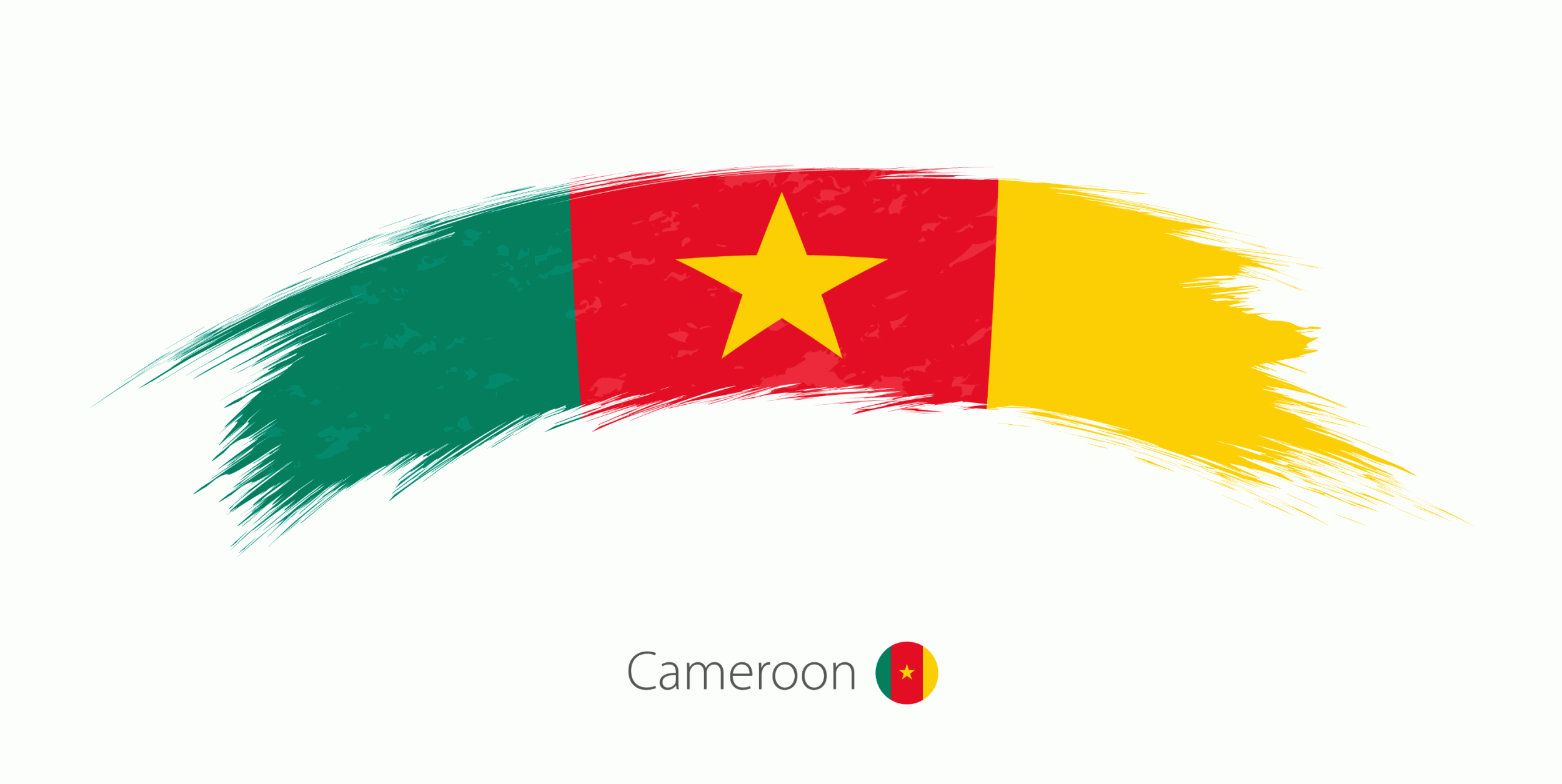
When the sun rises high and the days stretch long, there's no better time to explore Cameroon's vibrant landscapes and cultural richness. This hidden treasure in Central Africa has a range of locations that are ideal for travellers who want to get away from the ordinary and experience the extraordinary. Whether you're a nature lover, a culture enthusiast, or just someone in search of adventure, Cameroon has something special for you this summer.
Imagine a land where every turn brings a new adventure, every path leads to an unexpected natural wonder, and every city offers a unique cultural experience. That's Cameroon in the summertime. With its diverse geography and vibrant cultures, Cameroon is a microcosm of Africa itself. From volcanic mountains to dense rainforests, quiet beaches to bustling city streets, each place offers its own slice of the world.
Limbe: City by the Sea
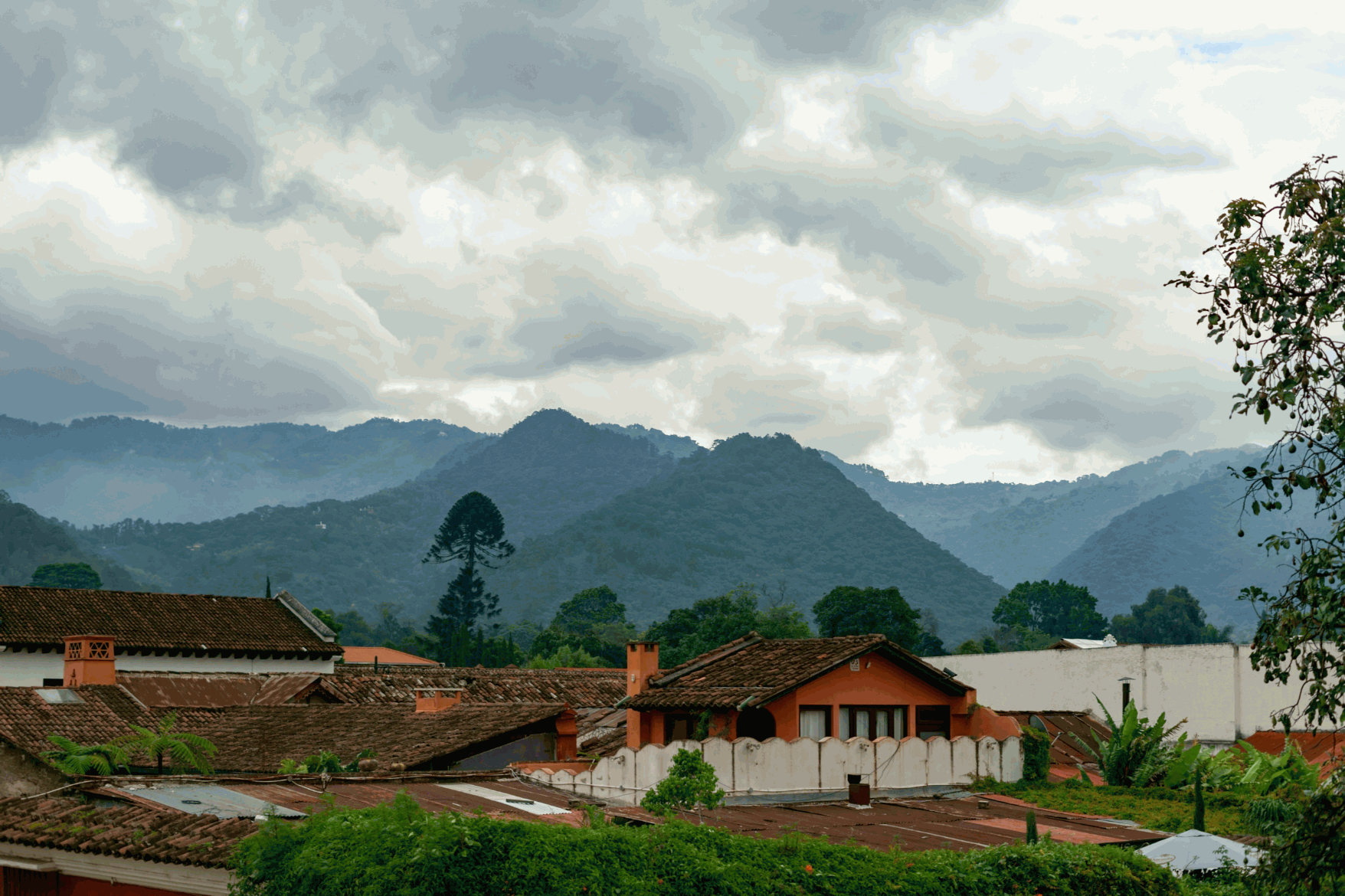
Nestled on the slopes of the stunning Mount Cameroon, Limbe is a tranquil city with black sandy beaches that contrast sharply against the blue Atlantic Ocean. It's the perfect spot for those who want to combine relaxation with exploration. Visit the Limbe Wildlife Centre to see rescued and rehabilitated animals, or just enjoy the fresh seafood and gentle sea breeze.
- What to See: Don't miss the Limbe Botanical Gardens, a showcase of Cameroon's native flora and a serene spot for a leisurely walk. The Limbe Wildlife Centre is also worth visiting to see its primate rehabilitation efforts.
- What to Do: Relax on Down Beach, where you can enjoy fresh fish grilled right on the shore. A boat trip around the bay offers stunning views and a chance to spot dolphins.
- Local Food: Try the local speciality, "Ndole", a delicious and hearty dish made with bitter leaves, peanuts, and either fish or meat.
The Dja Faunal Reserve: A UNESCO Heritage
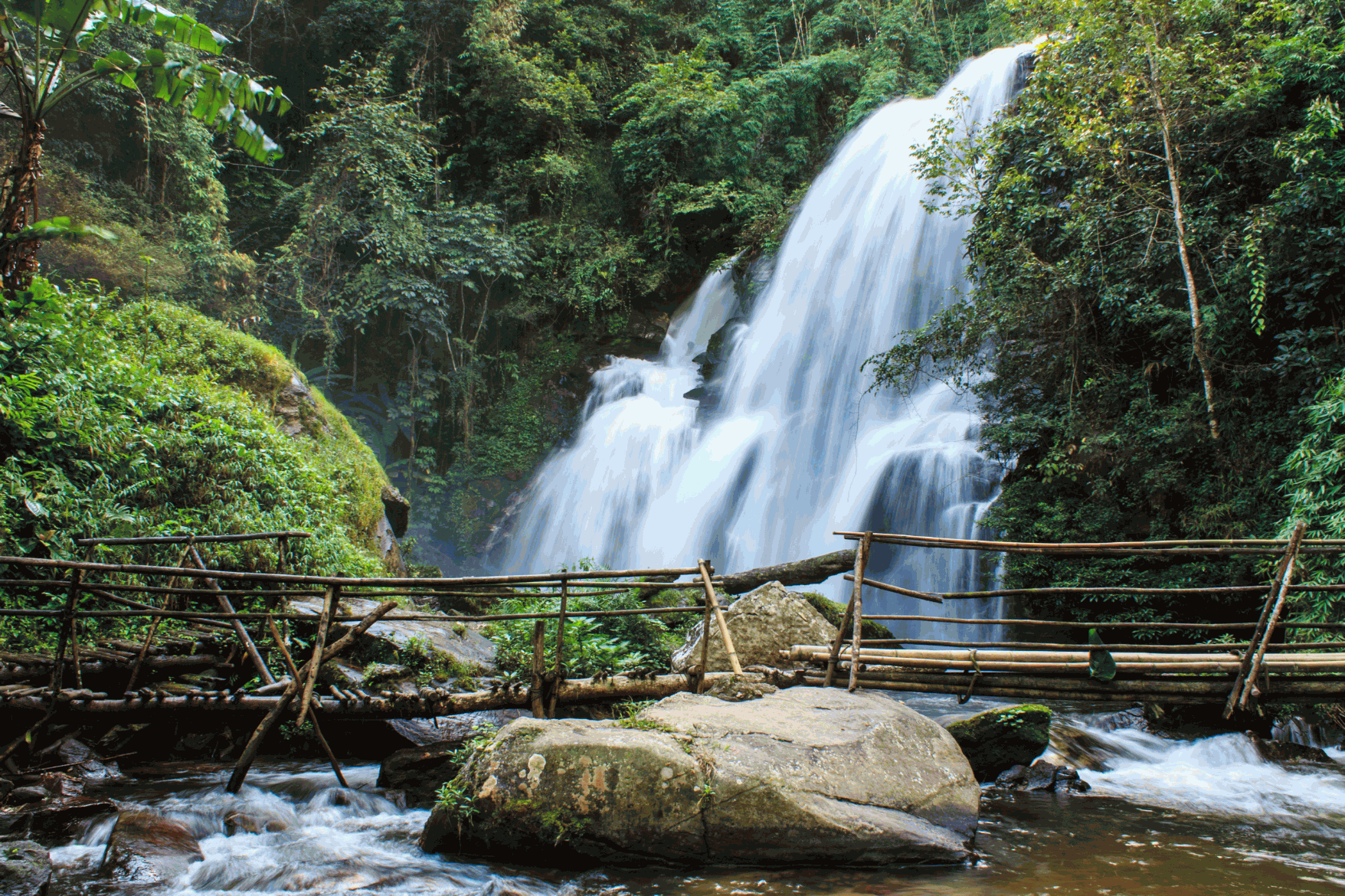
This vast rainforest reserve is one of Africa's largest and most protected rainforests. A UNESCO World Heritage site, the Dja Faunal Reserve is a sanctuary for numerous plant and animal species, many of which are endemic. Trek through the lush greenery and feel like you're stepping through a living, breathing nature documentary.
- What to See: Explore the reserve's untouched natural beauty, which is teeming with wildlife, including gorillas, chimpanzees, and elephants.
- What to Do: Guided safari tours are available, offering the chance to see some of Africa's most iconic wildlife in their natural habitat.
- Local Food: Sample some local game meat, often prepared as brochettes (kebabs).
Foumban: The Heart of Arts
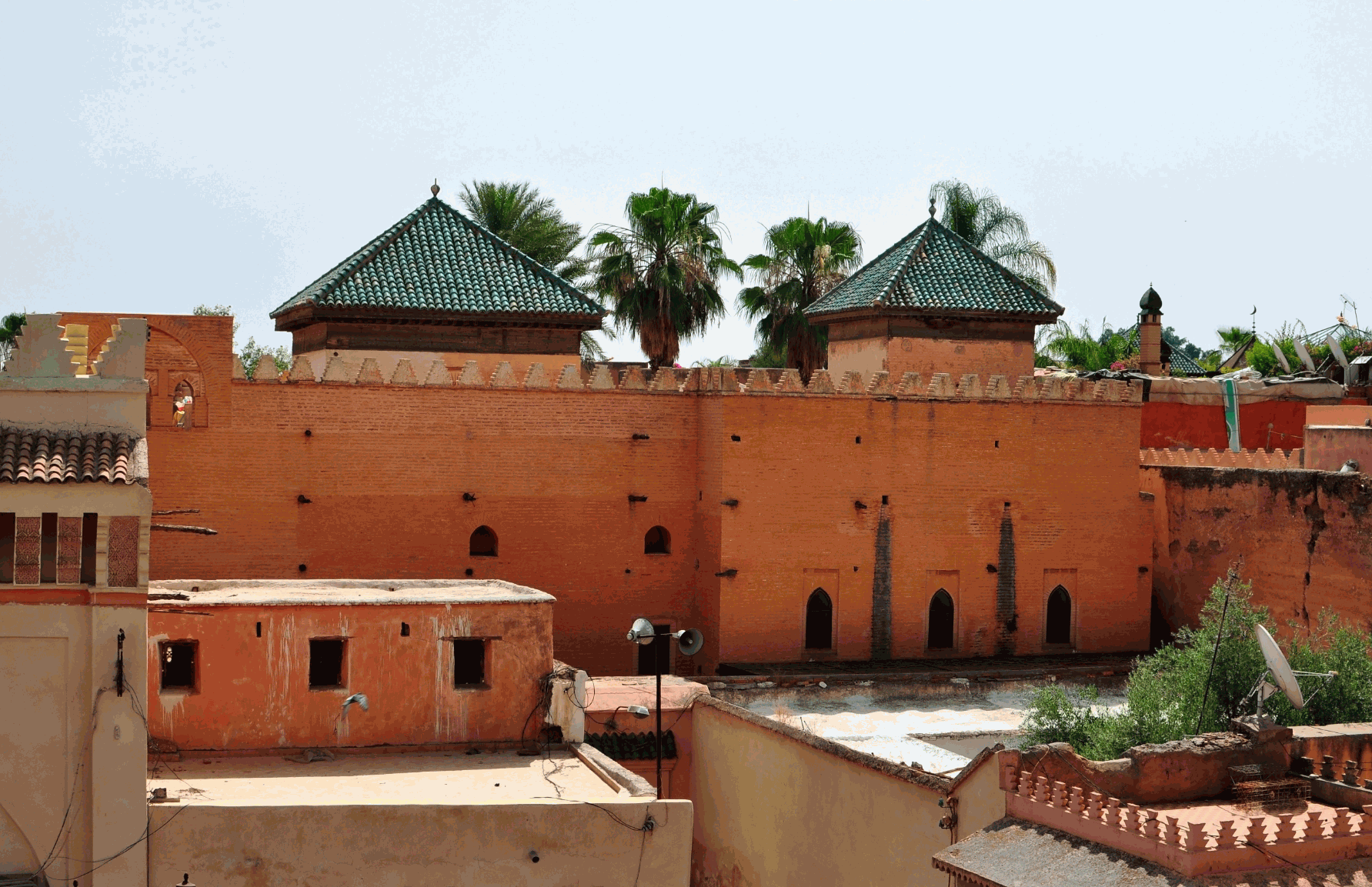
- Foumban is known for its rich history and artistic heritage, often referred to as the cultural heart of Cameroon. The city is home to the Royal Palace and the Museum of Arts, which house an impressive collection of traditional Bamoun art. The vibrant local markets, bustling with artisans crafting everything from pottery to intricate beadwork, are a testament to the city’s creative spirit.
- What to See: Visit the Royal Palace and the adjacent museum to learn about the Bamoun people's rich history and culture.
- What to Do: Explore the vibrant artisan market where local craftsmen sell pottery, wood carvings, and traditional textiles.
- Local Food: Taste "Bamoun Foufou", a local corn-based dish often served with meat and a spicy sauce.
Mount Cameroon: An Adventurous Climb
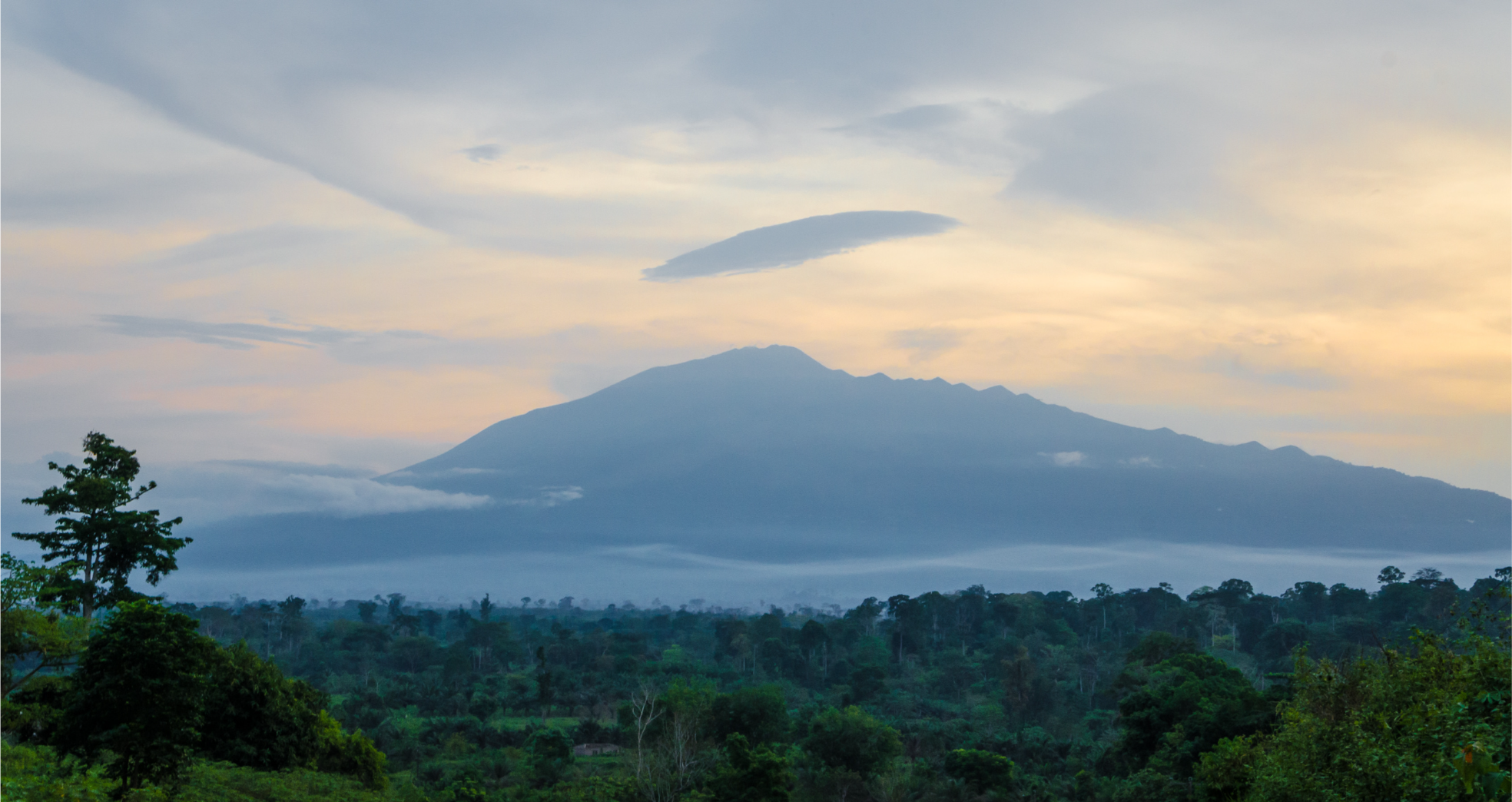
For adventurous souls, Mount Cameroon offers challenging treks and breathtaking views. It’s not just a mountain; it's an active volcano, one of the highest peaks in West Africa. Climbing Mount Cameroon is both a physical challenge and a journey through diverse ecological zones.
- What to See: As you climb, the changing landscape from tropical rainforest to savannah and then alpine meadows is spectacular.
- What to Do: Hiking and mountaineering are popular activities here, with routes varying in difficulty to suit different fitness levels.
- Local Food: Be sure to try the locally grown, fresh fruits like papayas and bananas that are often sold by vendors along the hiking paths.
Kribi: The Pristine Beaches
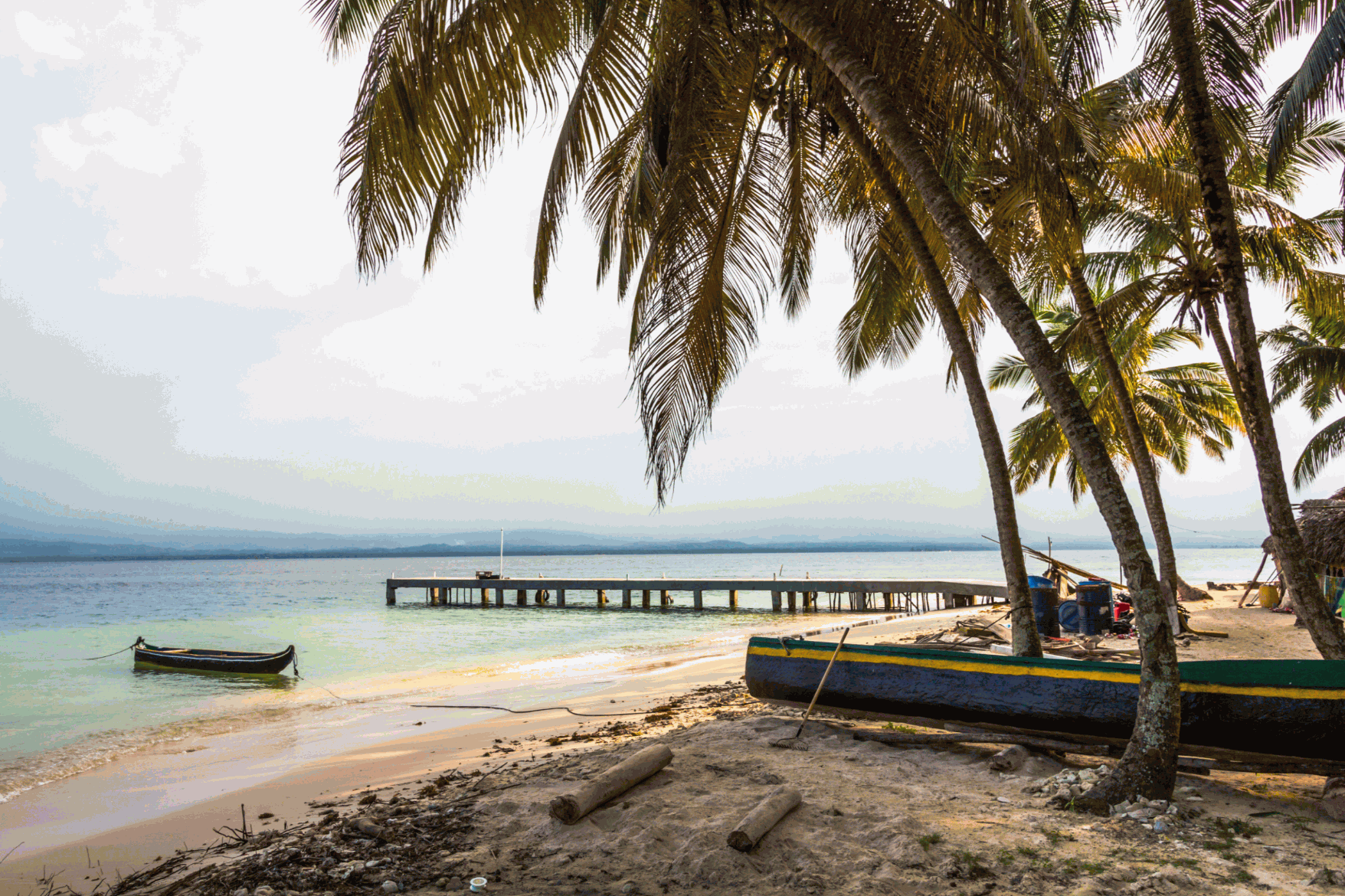
Kribi is the go-to destination for beach lovers. Its beautiful sand beaches and turquoise, crystal-clear waterways make it a perfect summer retreat. Don’t miss the Lobe Waterfalls, where you can witness the rare sight of a waterfall plunging directly into the sea.
- What to See: The Lobe Waterfalls, where the river cascades directly into the ocean, is a unique and breathtaking sight.
- What to Do: Swimming, sunbathing, and enjoying water sports like jet skiing and paddle boarding are popular.
- Local Food: Seafood is a must-try here, especially the shrimp and crayfish.
Bamenda Highlands: A Breath of Fresh Air
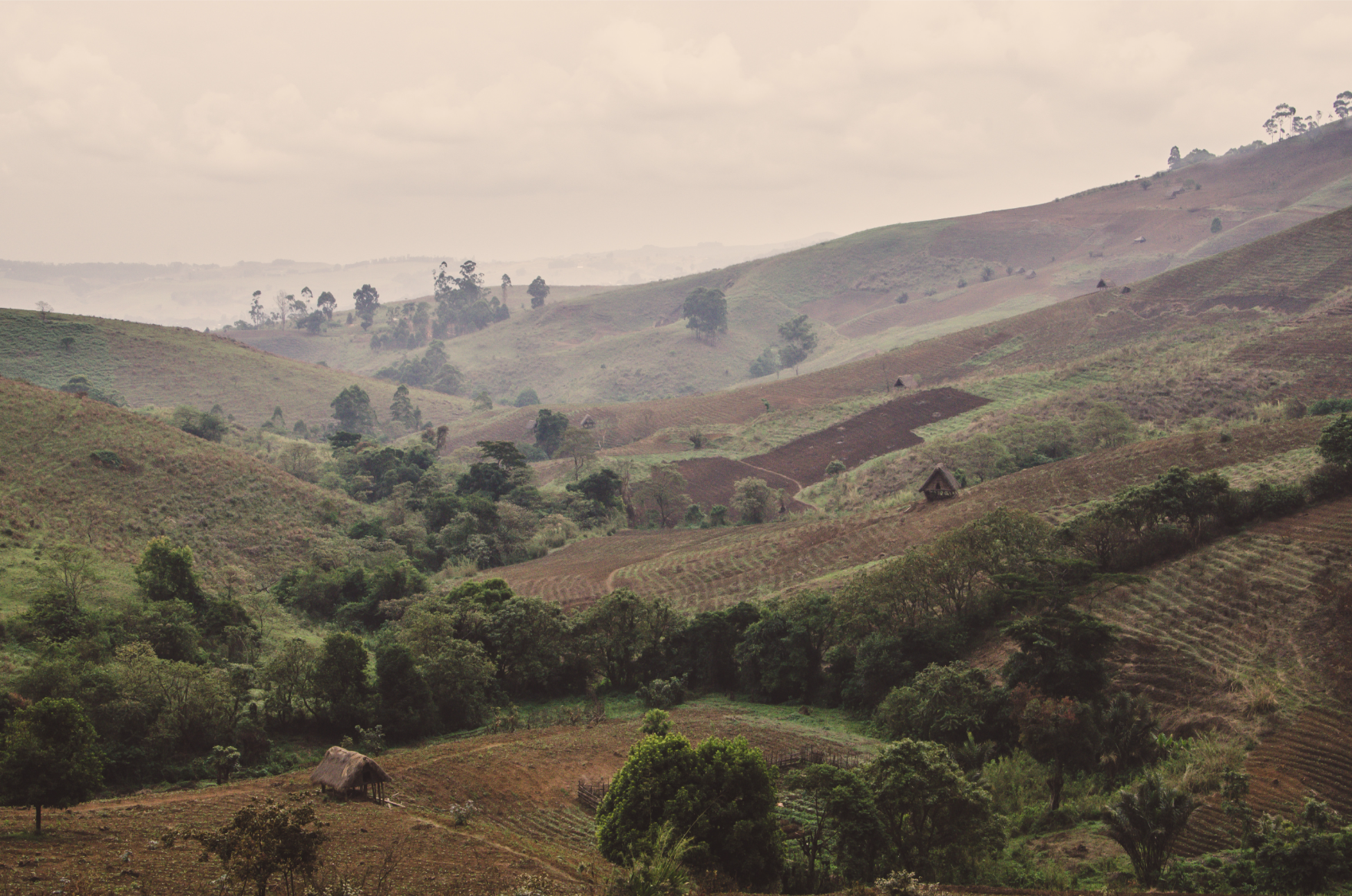
Rising above the heat of the plains, the Bamenda Highlands offer a cooler climate and scenic landscapes. The highlands are a great place to explore traditional villages, hike through picturesque hills, and discover the rich traditions of the local people.
- What to See: The highlands are dotted with traditional villages and stunning landscapes that offer a glimpse into rural Cameroonian life.
- What to Do: Trekking through the hills and visiting local craft workshops are great ways to spend your time.
- Local Food: Try "Achu", a traditional yellow soup made from pounded cocoyams and palm oil.
The Mandara Mountains: A Cultural Journey
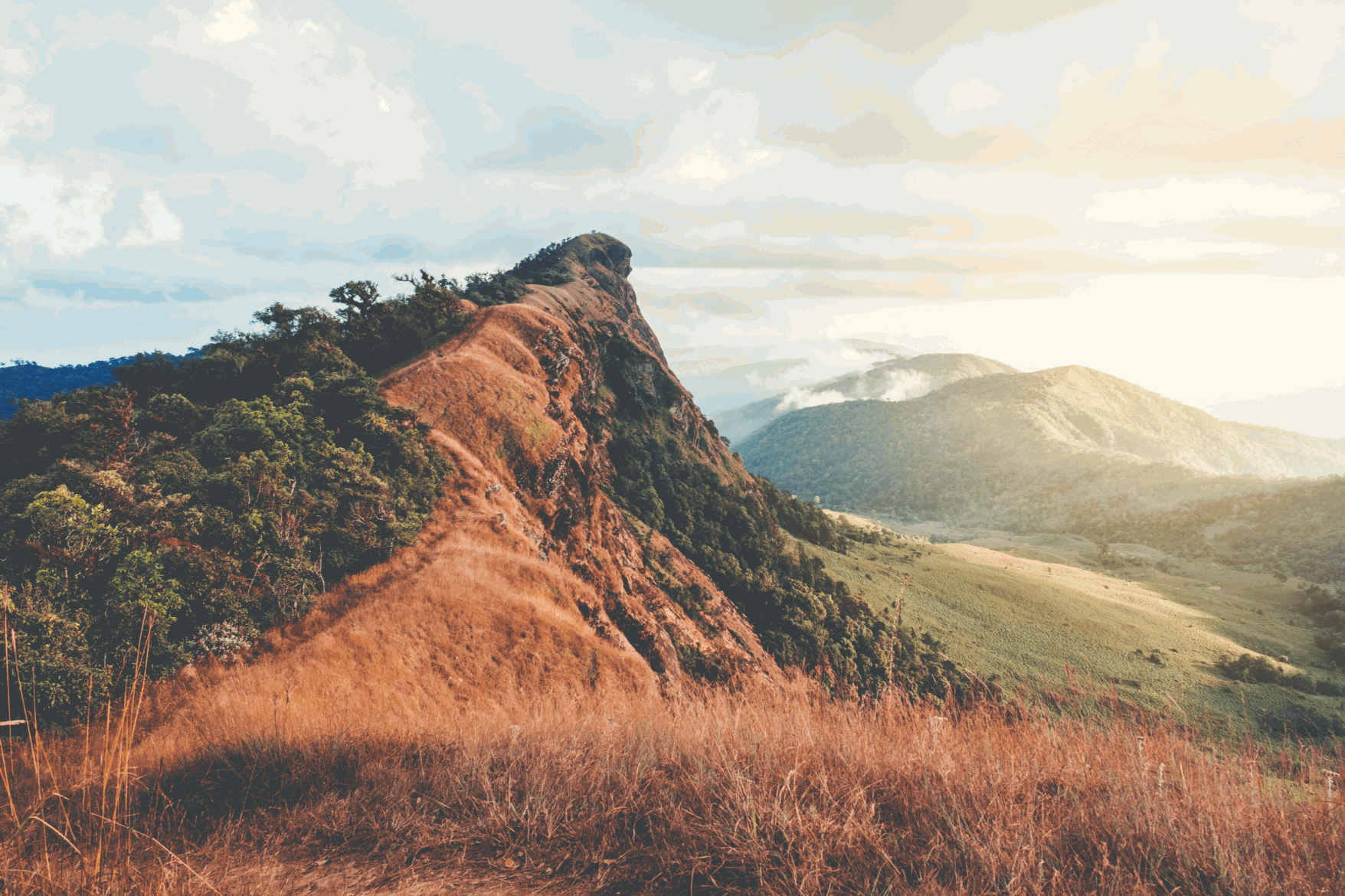
The rugged, imposing Mandara Mountains are both a sight to behold and a cultural mosaic. The region is dotted with traditional villages, where life has remained unchanged for centuries. This area offers a glimpse into the lives of various ethnic groups, each with their own unique customs and traditions.
- What to See: The intricate terraces and traditional mudbrick houses of the villages are architecturally fascinating.
- What to Do: Hiking through the mountains and interacting with local communities provides insight into their enduring cultural practices.
- Local Food: Sample millet beer, a traditional drink that is a staple at local gatherings.
Waza National Park: A Wildlife Haven
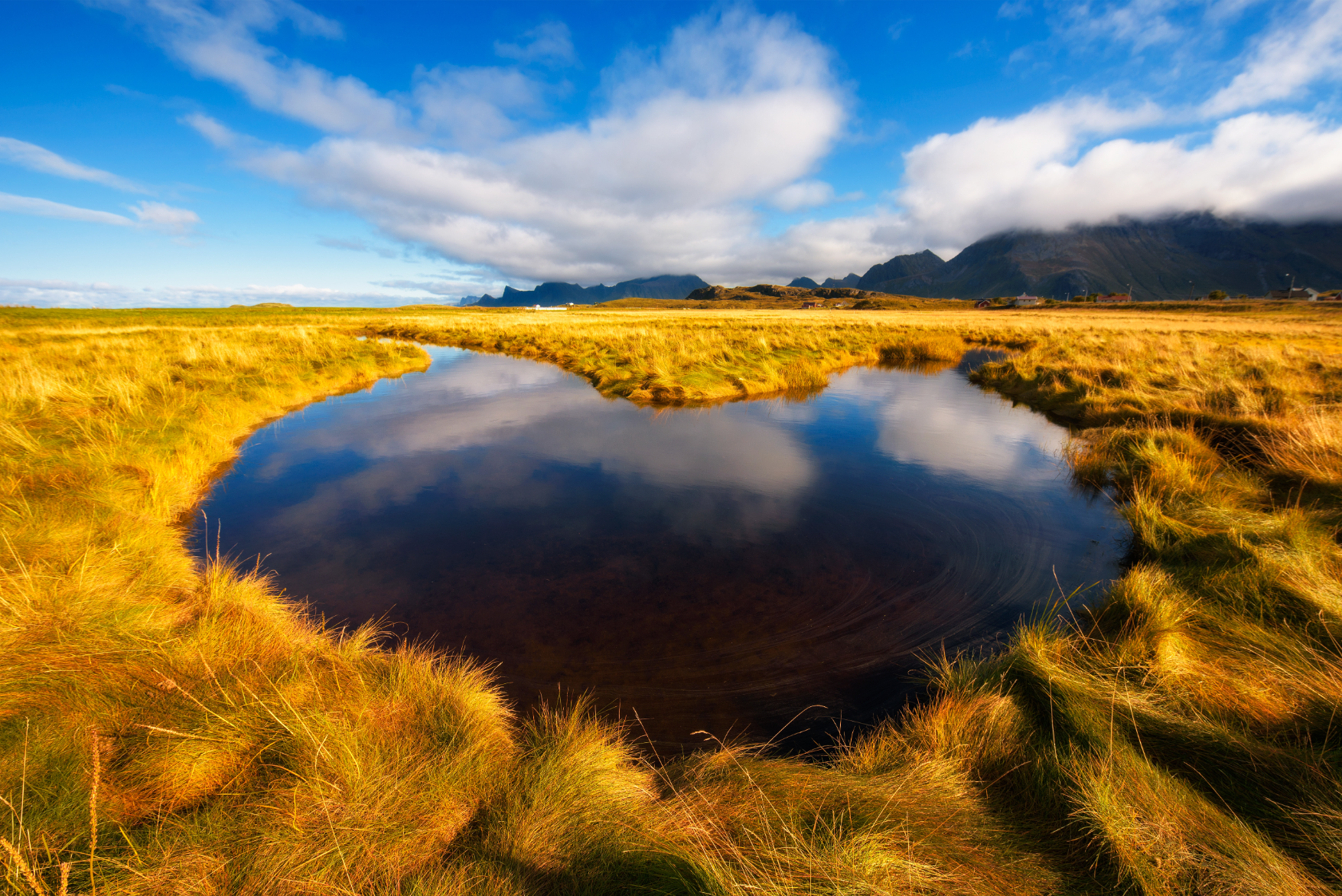
This national park is one of Cameroon's top destinations for wildlife enthusiasts. During the summer months, the park becomes a bustling hub of activity. You can spot elephants, giraffes, antelopes, and even lions, if you’re lucky, roaming freely in their natural habitat.
- What to See: The park is home to elephants, lions, and a variety of birds, making it a paradise for wildlife enthusiasts.
- What to Do: Wildlife safaris are the main attraction, offering the chance to witness animals in their natural settings.
- Local Food: While options are limited in the park, visiting nearby towns can offer opportunities to try local dishes like "Fufu and Djama Djama" (a spinach-like vegetable).
Maroua: The Gateway to the Far North
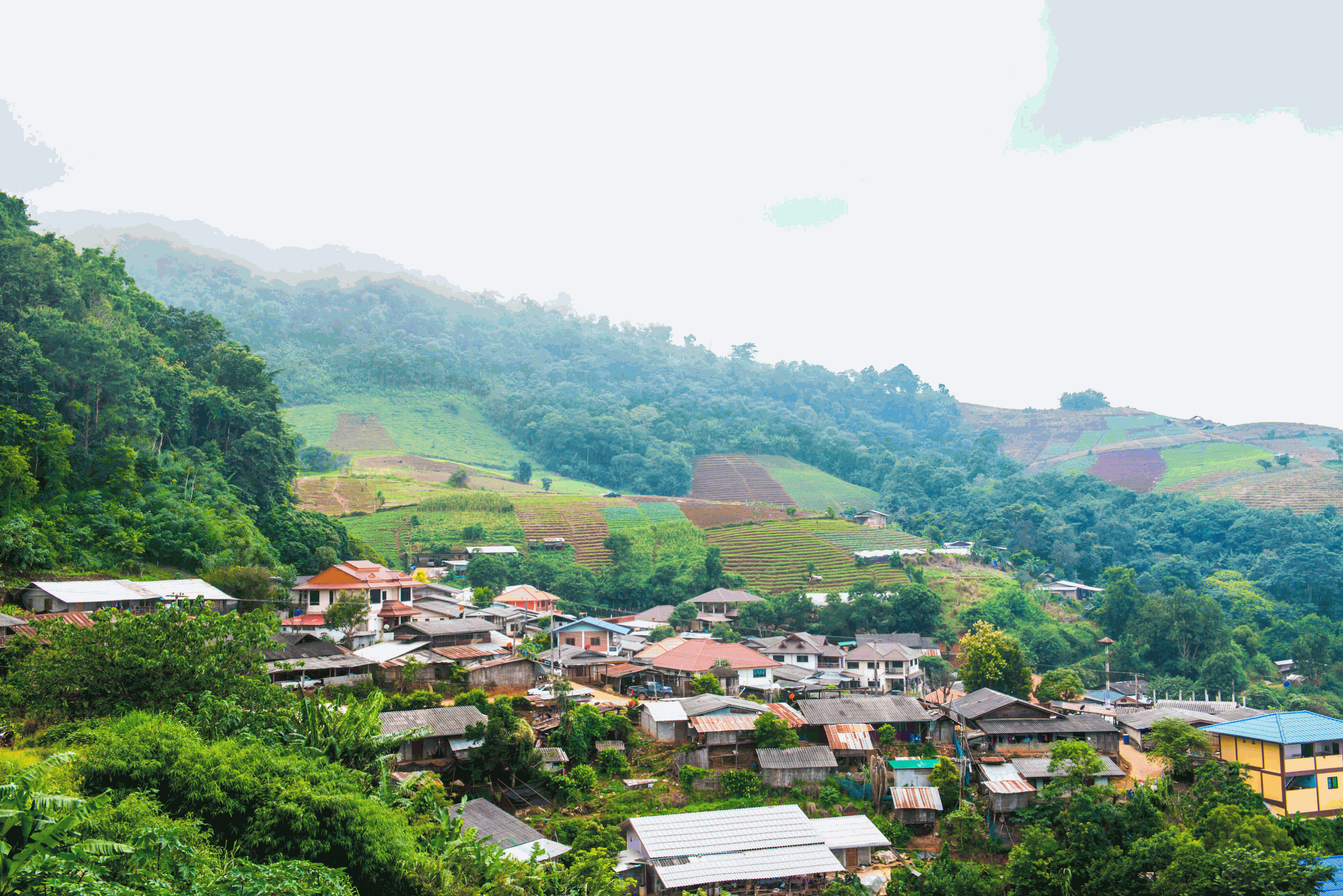
Maroua is often overlooked by tourists, which is a shame because it offers a unique blend of cultures and a peek into the Sahelian way of life. The markets are lively and colourful, perfect for picking up traditional crafts and spices.
- What to See: The bustling markets of Maroua are a colourful display of local life and crafts.
- What to Do: Explore the markets for souvenirs, such as traditional Fulani blankets and jewellery.
- Local Food: "Kola nut" is popular in Maroua, often used in traditional ceremonies and as a stimulant.
Bafoussam: City of Festivals
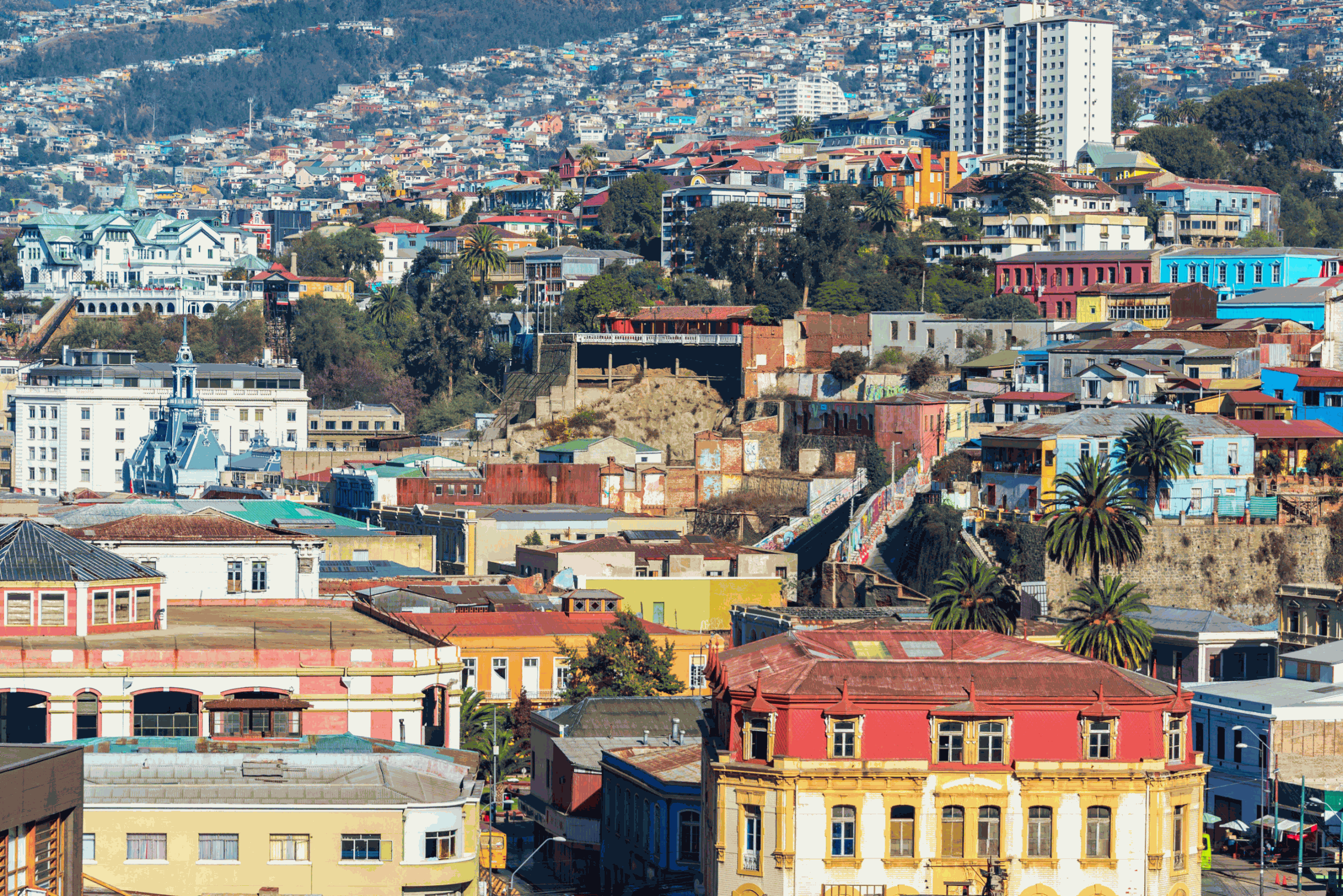
In the heart of the West Region, Bafoussam is known for its vibrant festivals and dynamic cultural life. Summer is the perfect time to experience these celebrations, including traditional music, dance, and local cuisine.
- What to See: The city is lively with festivals, particularly around traditional holidays, featuring music, dance, and colourful costumes.
- What to Do: Participate in a festival or explore the nearby traditional kingdoms of the Bamileke people.
- Local Food: "Banga soup", a flavorful stew made with palm nuts, fish, and spices, is a local favourite.
The Ring Road: A Scenic Drive
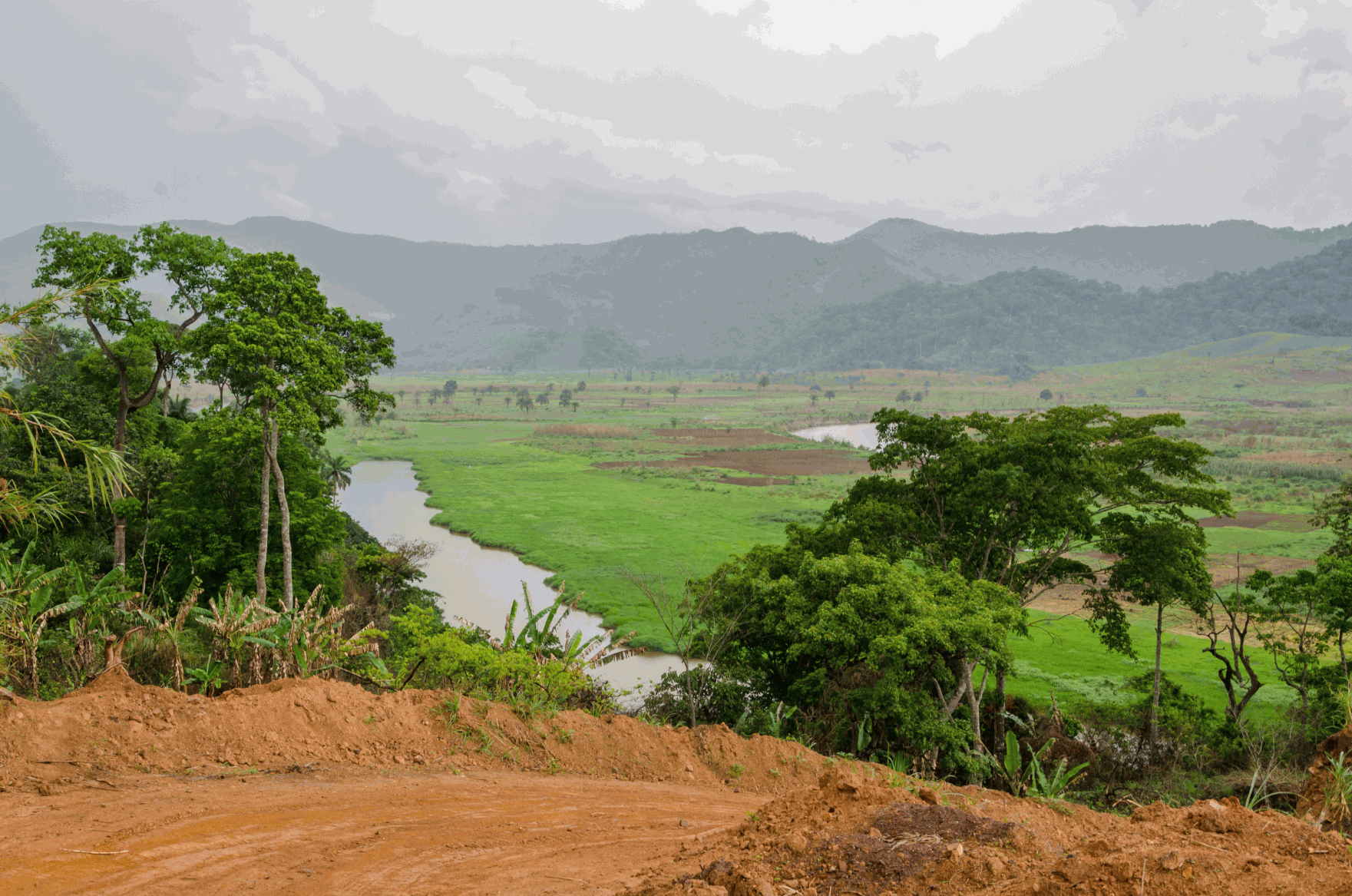
This circular route offers one of the most scenic drives in Cameroon, winding through mountainous terrain and offering stunning views. It's a great way to see the diverse landscapes and rural life of Cameroon.
- What to See: This route offers panoramic views of Cameroon’s diverse landscapes, from lush green valleys to rocky hillsides.
- What to Do: Stop at small villages along the way to learn about local life and customs.
- Local Food: Roadside stalls often sell grilled corn and meat skewers, perfect for a quick snack.
Yaoundé: The Capital’s Charms
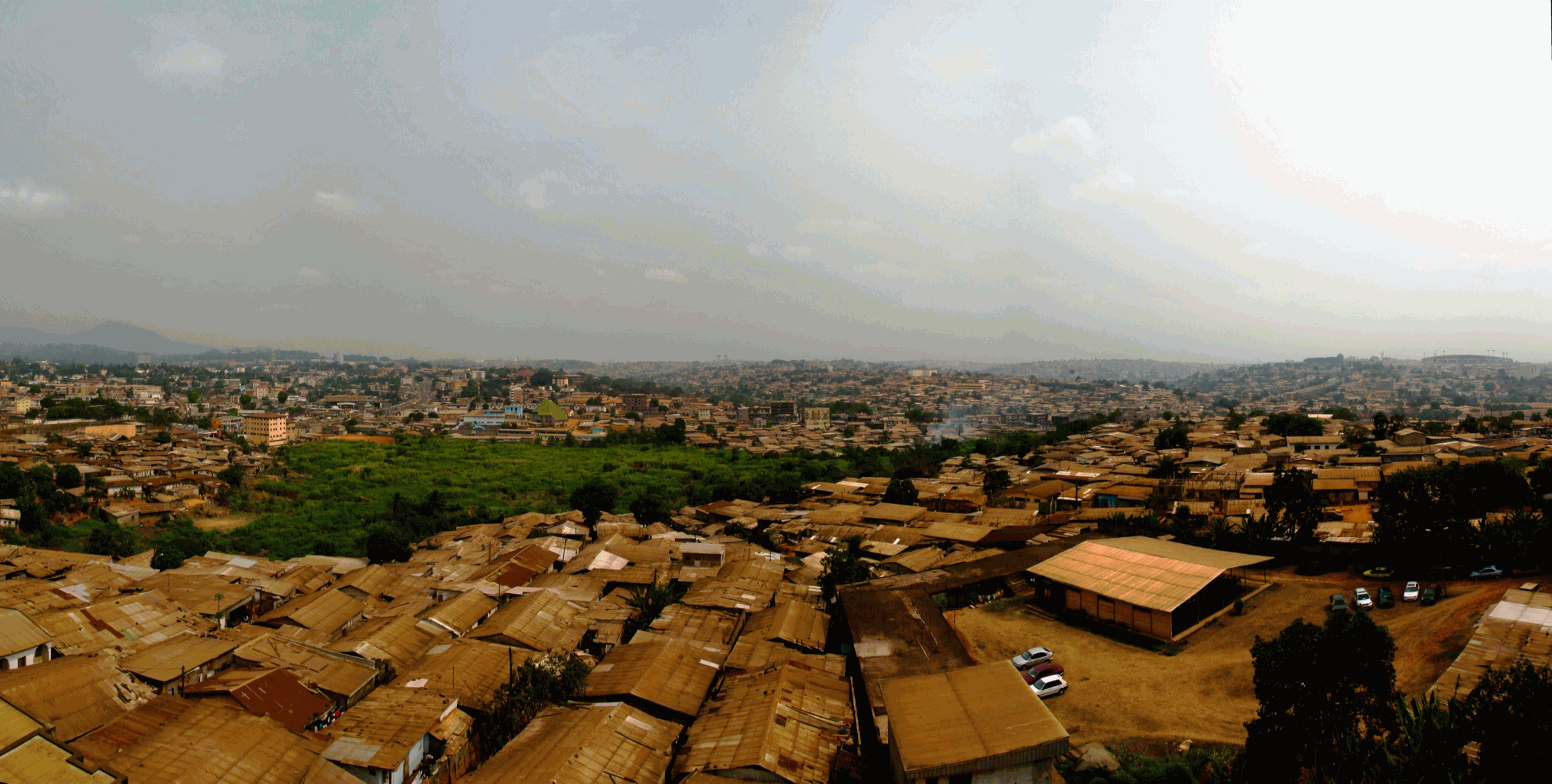
Yaoundé, the political capital, is filled with museums, green spaces, and government buildings. It offers a different vibe from the commercial hustle of Douala, with more emphasis on cultural attractions and leisurely pursuits.
- What to See: The National Museum offers insights into the country's cultural heritage, and the Benedictine Monastery showcases exquisite local crafts.
- What to Do: Stroll through the city's green spaces, like the Mvog-Betsi Zoo, or visit the bustling central market.
- Local Food: Try "Sangha", a spicy fish stew that's a staple in local cuisine.
Douala: The Bustling Metropolis
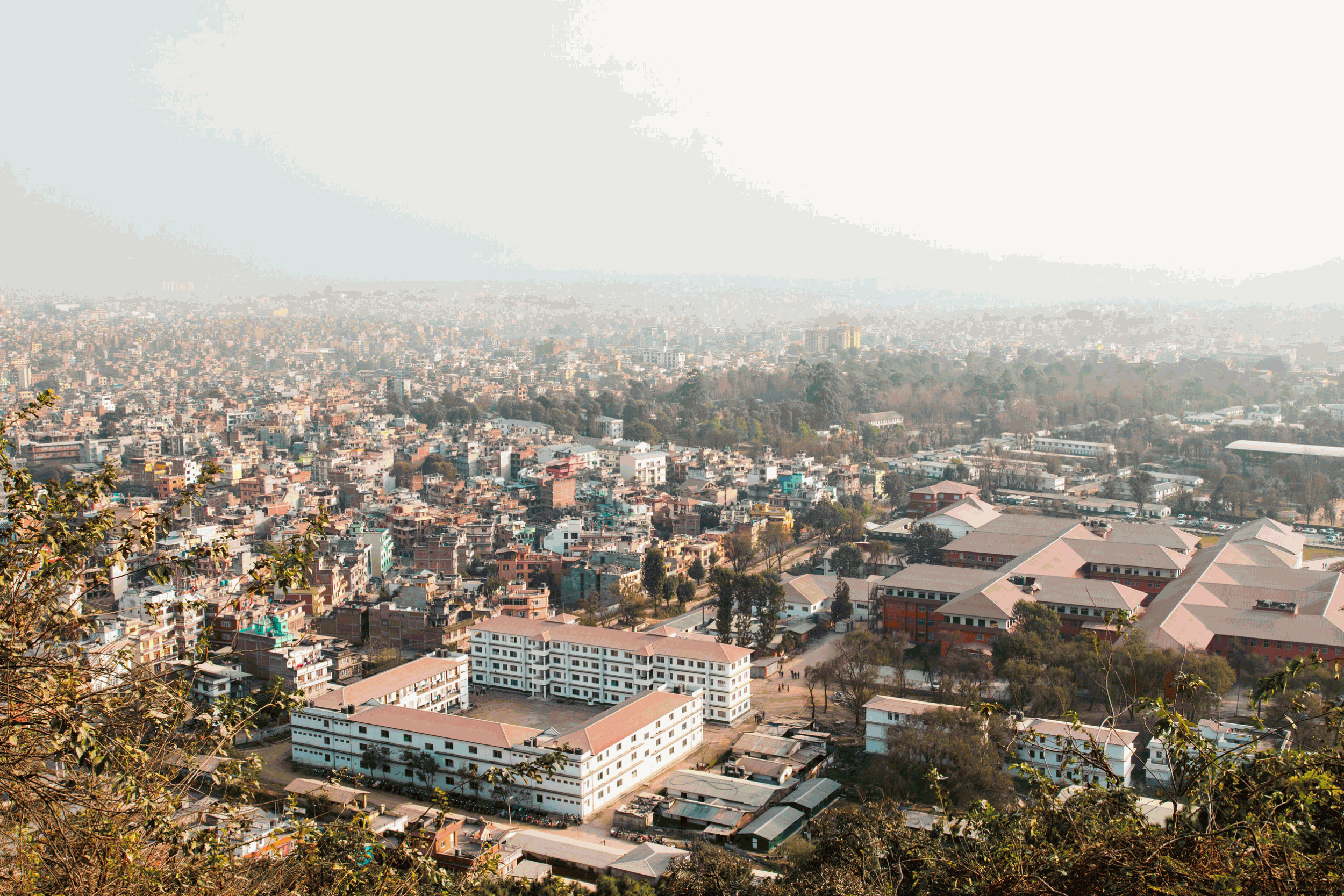
As Cameroon's economic capital, Douala is a city of action. From bustling markets to vibrant nightlife, there’s always something happening here. It's a great place to experience the modern side of Cameroon.
- What to See: Douala is known for its vibrant art scene, with numerous galleries and street art installations.
- What to Do: Nightlife in Douala is vibrant, with numerous clubs and bars. Shopping in the Akwa district offers everything from local handicrafts to high-end goods.
- Local Food: "Ndolé" is also popular here, often served with fried plantains and spicy grilled chicken.
Conclusion
In the summer, Cameroon is a land of diversity and beauty, offering everything from serene beaches to lively festivals. Cameroon promises an unforgettable adventure, whether you’re climbing mountains, exploring rainforests, or soaking up local culture.
FAQs
When would be the best to travel to Cameroon?
The dry season, which extends from November to February, is the ideal time of year to travel to Cameroon. However, summer offers lush landscapes and vibrant local festivals.
Are there any health precautions to take when travelling to Cameroon?
Yes, getting vaccinated against yellow fever and malaria prophylaxis is recommended before visiting. Always check with your healthcare provider for the most current advice.
What are the must-try foods in Cameroon?
You must try Ndolé, a dish made of stewed nuts, ndoleh (bitter leaves), and fish or meat. Plantains and beignets are also popular.
Is it safe to travel to Cameroon?
While certain regions are safe, staying informed about the security situation is important. Always check travel advisories and consult locals when planning your travel.
Can I find good accommodation in Cameroon?
Yes, Cameroon offers a range of accommodations, from luxury hotels to budget guesthouses, especially in major cities and tourist-friendly areas.
Applying for a Cameroon eVisa
- Step 1: Complete the online application form with your personal details and passport information.
- Step 2: Proceed to securely pay online using your credit card.
- Step 3: Check your email for payment confirmation and receipt of your Cameroon eVisa, which will be sent electronically.



